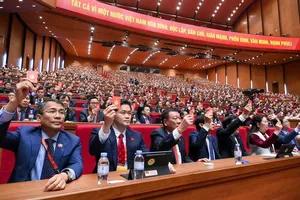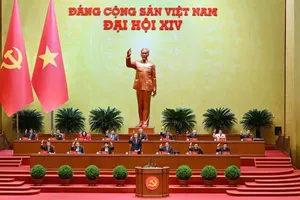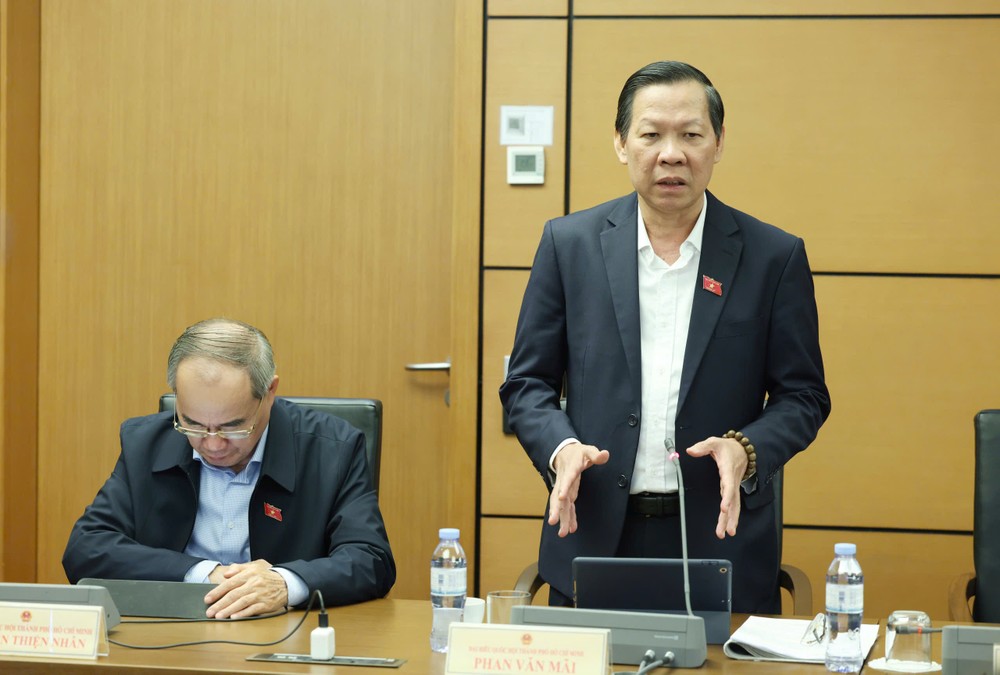
Mr. Phan Van Mai, Chairman of the NA Committee for Economic and Financial Affairs, noted that while the programs are essential, funding has not yet been allocated in the medium-term budget plan. The NA heard reports, appraisal findings, and proposals before engaging in group discussions on the investment policy for the national target program on education modernization and the national target program on health, population, and development.
Proposal to implement cross-regional support mechanism between localities
In the Ho Chi Minh City group, Mr. Phan Van Mai highlighted the plan to merge three existing national target programs—poverty reduction, new rural development, and ethnic minority and mountainous region development—into a single consolidated program. The combined budget for the next five years is approximately VND100 trillion (roughly US$4.2 billion), with additional sources bringing the total to around VND140 trillion for all three components.
Regarding the new education and healthcare programs, Mr. Phan Van Mai emphasized that while they are critically needed, no funding has yet been earmarked. The Ministry of Finance is currently advising the Government on resource allocation. Mr. Phan Van Mai suggested prioritizing unallocated funds in the annual budget to avoid delays. Waiting for the first session of the 16th National Assembly in April 2026 to approve a mid-term resolution could cost six months, hindering timely investment and repairs to educational and healthcare facilities, particularly in flood-affected areas.
Mr. Phan Van Mai also stressed the importance of focusing on priority objectives to prevent overlapping or redundant investments. He proposed a single local steering committee to manage all national target program activities at the commune level, reducing administrative burdens.
A notable recommendation from Mr. Phan Van Mai involves cross-regional support mechanisms, allowing one locality to use its budget to support projects in another. Businesses in one province could sponsor projects elsewhere and receive corporate income tax deductions. To encourage social contributions, sponsored projects could feature the names of contributing enterprises or individuals.
NA Deputy Tran Hoang Ngan echoed Mr. Phan Van Mai’s concerns, emphasizing the need to avoid duplication and mobilize non-state resources. He highlighted education modernization as a priority, with key focus areas including land policy and university funding.
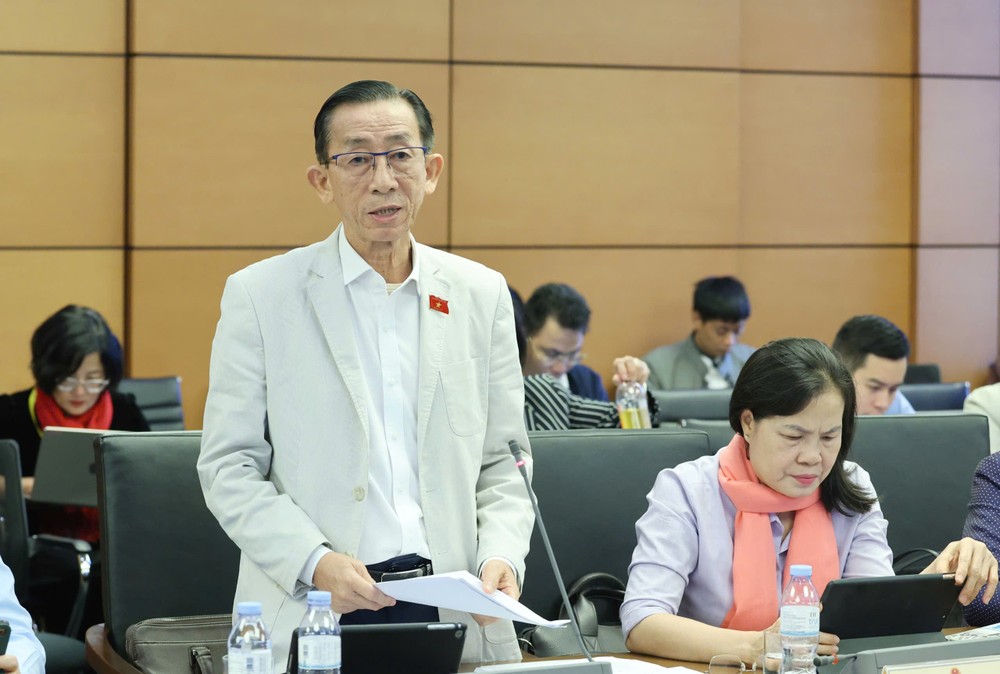
Proposal to abolish contract-based teacher recruitment
NA Deputy Hoang Van Cuong (Hanoi) stressed that achieving quality education requires adequate facilities from preschools to universities and vocational institutions. He cited the example of well-equipped foreign schools and the National Economics University, where modern infrastructure encourages student engagement beyond classroom hours. According to Mr. Hoang Van Cuong, improved infrastructure facilitates extended teaching hours and active learning.
Mr. Hoang Van Cuong underscored that investment in physical infrastructure must be accompanied by investments in teaching personnel. Without qualified teachers, infrastructure alone cannot improve educational outcomes. He also highlighted the importance of digital transformation, advocating for smart classrooms, AI-assisted learning, and enhanced digital literacy for both students and educators. These initiatives aim to modernize teaching methods and improve learning efficiency.
NA Deputy Nguyen Anh Tri (Hanoi) highlighted the NA’s focus on education as a “top national policy.” Mr. Nguyen Anh Tri emphasized the need for investments that upgrade educational infrastructure and enhance teaching capacity, ensuring that teachers meet both professional and ethical standards. He called for guaranteed teacher staffing across all localities, avoiding arbitrary reductions, especially amid administrative mergers. Mr. Nguyen Anh Tri also urged the Ministry of Education and Training to review and verify any sudden dismissals of contract teachers, and recommended abolishing short-term contract-based recruitment. He stressed that adequate infrastructure must be matched with proper staffing and genuine incentives for educators, rather than policies that exist only on paper.
On the healthcare front, Mr. Hoang Van Cuong highlighted the significance of digital health records, advocating for a nationwide electronic health record system to facilitate seamless medical services. Such digital solutions would allow citizens to receive care anywhere with fully integrated health information.
General Secretary To Lam praised these efforts, noting that telemedicine and digital health records are already practical in Vietnam. He cited examples of complex surgeries involving online consultations with experts from multiple hospitals. Mr. To Lam expressed optimism about the digital health record system, which enables hospital directors to monitor patient flows, treatment plans, and prescriptions in real time. He emphasized that electronic health records help track an individual’s health from birth, reduce waiting times, and promote broader digital transformation within hospitals.

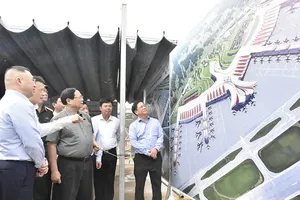







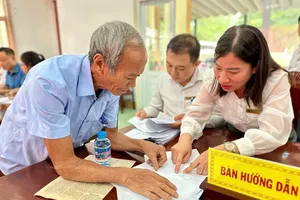

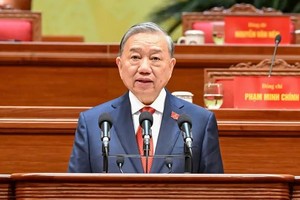
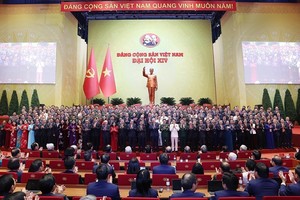
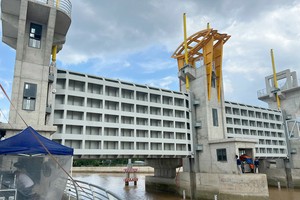
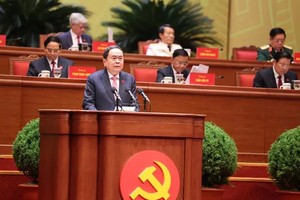
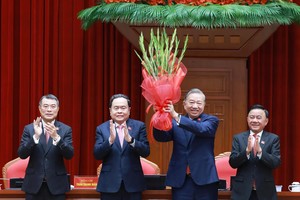
)

